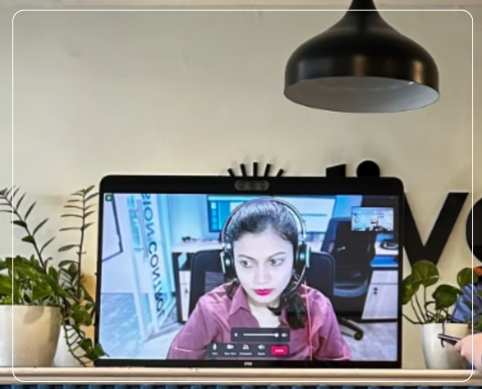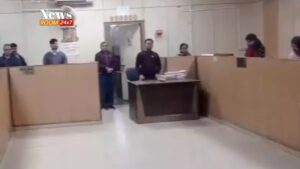Delhi CEO posts a photo of a virtual receptionist at a hotel in Bengaluru, describing it as a “Peak Bengaluru” moment

The trend of virtual hotel receptionists appears to be gaining traction in India, particularly in Bengaluru, the country’s tech hub. When Ananya Narang, the CEO of Entourage based in Delhi, checked into a hotel in Bengaluru recently, she was taken aback to discover that the front desk staff had been replaced by a virtual receptionist managing everything remotely.
Narang shared a photo of the receptionist displayed on a laptop screen at the hotel’s front desk, describing it as her very own “Peak Bengaluru” moment, noting that such virtual receptionists have yet to be seen anywhere else in India.
“Peak Bengaluru Moment – A Virtual Receptionist. Once I checked in, I realized the hotel had no staff except for two security guards and a couple of technicians,” Narang wrote in her LinkedIn post.
She explained that trained hospitality staff, located at the head office, coordinated and managed everything for guests through video conferencing, eliminating the need for on-site receptionists. The “virtual receptionist” interacted with guests via a laptop positioned at the front desk.
“Everything was coordinated by trained hospitality staff at their head office, simultaneously managing multiple properties,” the entrepreneur added, remarking, “You won’t find this anywhere else in India yet, except in Silicon Valley.”
Innovative or extra work?
For a long time, the hospitality industry was viewed as one where work-from-home arrangements would be impractical. However, the idea of a virtual receptionist appears to be shifting that perception.
Virtual receptionists utilize technology such as video screens, mobile apps, or AI-driven chatbots to perform tasks typically handled by human staff at a hotel’s front desk.
Nevertheless, Narang’s post received mixed responses. On the social media platform X, users engaged in a debate over whether the trend of virtual hotel staff is innovative or merely an added hassle for guests.
“This is a striking example of Indian startups and their so-called ‘innovation.’ It negatively impacts both customer and worker experiences. Yet, there’s a superficial tech layer added just for show,” stated X user Vinay Aravind.
“Either give me a friendly human interaction, or let me complete my tasks without having to deal with pointless hurdles designed for your CMO to win a trivial award,” another user commented.
“This is actually fantastic. We can provide services to hotels around the world virtually… I hope something like this gains traction,” countered X user Dhruv.
Some users highlighted more apparent flaws in the concept, questioning how guests would check in if the WiFi happened to fail.









